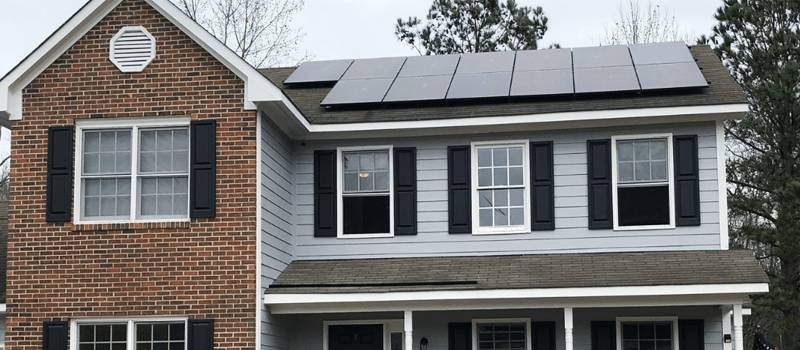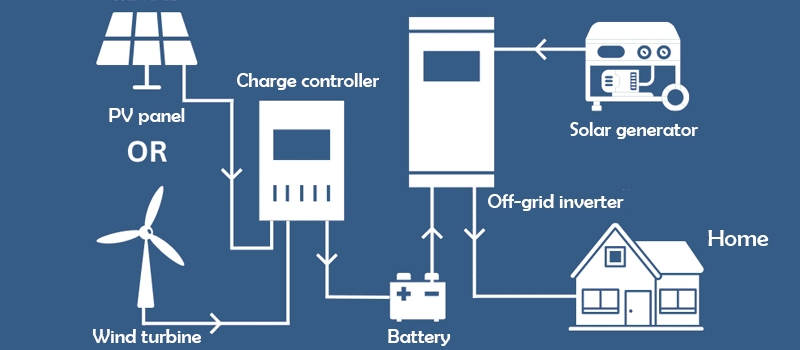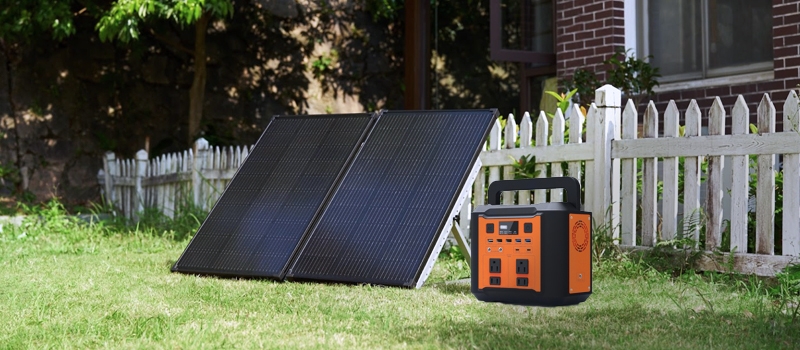The word "off-grid" has a lot of different meanings in our lives. For some, "off-grid" means unplugging from work and not answering phone calls, emails, or texts (good luck with that, right?). For others, it means going against social norms and going at your own pace. This is closer to why people want to install solar equipment. They want to stop dealing with the external power grid and just generate their own electricity for their homes. Imagine the joy of cutting the wires!
There are lots of advantages to going solar. You can help the environment by reducing carbon emissions and you might even save money on your electricity bills. However, if you're already connected to the grid, you can't afford to cut that connection when installing solar equipment. The good news is that adding solar energy means you'll depend less on the utility company. You can further reduce your dependence on the utility company by adding a backup battery along with the purchase of solar panels.
The vast majority of residential solar systems are grid-tied

Most people's homes are hooked up to local utilities, including the electric grid. Without these utility connections, it's tough to flush a toilet, start a smart TV, or use a natural gas stove. People need to use solar energy where there is no grid connection. Chances are, you're not one of those people, which is why you're thinking about connecting your solar energy to a utility provider.
That said, connecting to the grid is never a bad thing. This connection lets the homeowner draw power from the grid when they need it, like when the solar panels can't produce enough power or at night when they can't. Using the grid as a backup source of energy means that as long as the grid is up and running, your electricity needs will be met. However, there are times when the grid may go out due to storms that cause power lines to break. For safety reasons, solar panel systems that are connected to the grid will shut down during an outage. The reason for this is that any excess solar energy that is sent back to the grid could be dangerous for power workers working on the outage lines.
So, how can you live off-grid with solar energy? It's really straightforward! Solar systems can be designed for off-grid use, which means they can operate independently without being connected to the utility grid.
Off-grid solar systems reduce reliance on the grid
Typically, off-grid solar systems include solar panels, batteries, an off-grid inverter, and a charge controller. Together, they form an autonomous, self-sufficient power generation system. Without the need for any external power supply or conventional energy sources, you can power your home and save a lot on your electricity bill. In times of crisis, customers can use an off-grid solar system to back up loads such as a refrigerator to prevent food and medicine from spoiling, a stove, or to continue to power a home office outlet so you can stay connected using your computer.

However, off-grid solar systems aren't without their limitations:
- It costs more upfront than a grid-connected system because you need batteries.
- Batteries need to be looked after and might need to be checked and replaced more often than with a grid-tied system.
- It might not be able to support high power demands because of the amount of storage space and budget you have available.
Go for the solar generator
You can also just pair solar panels with a solar generator. An all-in-one solar generator is usually a compact system with an integrated off-grid inverter and batteries that store excess energy produced by the solar panels, so you're even less dependent on the grid. They're designed for off-grid living and support the following functions:
- They're great for meeting your basic daily needs, like lighting, refrigerators, TVs, fans, and so on.
- These generators are designed to be lightweight and easy to move around, making them ideal for camping, traveling, or temporary use.
- All-in-one systems usually don't require a complicated installation process and can be easily set up and started by the user.
- Solar power generators usually have multiple power outlets, including USB ports, AC outlets, and DC outlets, so you can plug in different appliances.

Portable solar generators are great for short-term use on the go or at home because they're so portable and easy to take with you. But if you're off-grid, you might have to adjust your power usage habits a bit. For example, you can use high-power appliances when the sun is shining and save your battery for non-essential appliances when it's low.
The time to go solar is now
Really. Now is the ideal time to go solar! With electricity prices on the rise, there's never been a better time to take control of your energy. PowerHome provides homeowners with all the tools they need to reduce their reliance on the grid. While we can't get you completely off the grid, we can get you close! Get in touch today to start your solar journey with us!
(1).png)
(1).png)